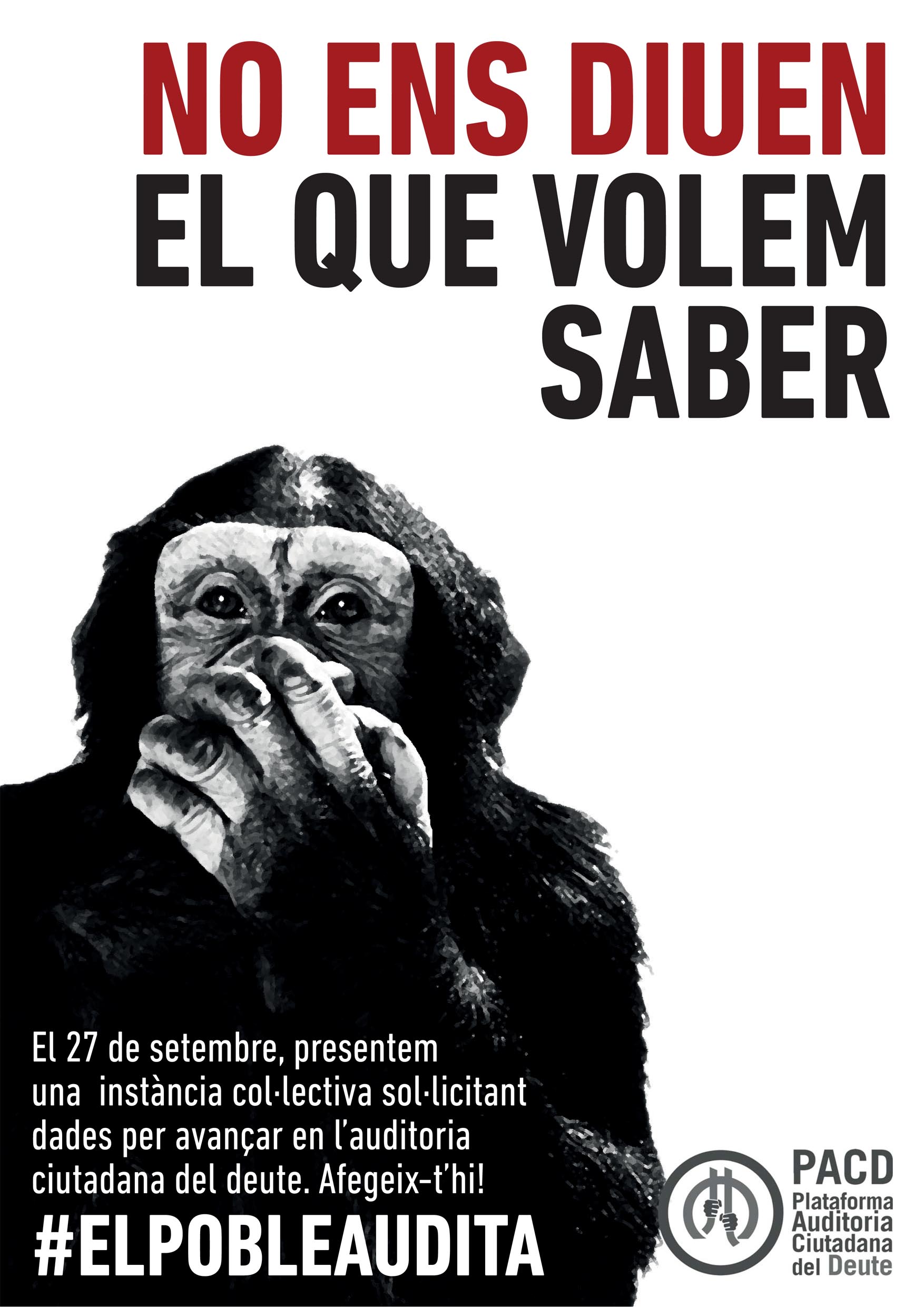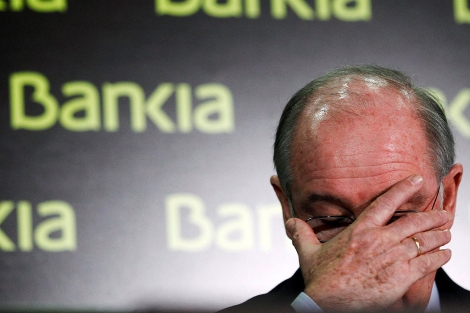
El 27 de setembre presentem una instancia col.lectiva sol.licitant dades per avançar en l’auditoria ciutadana del deute. Afegeix-t’hi!

El 27 de setembre presentem una instancia col.lectiva sol.licitant dades per avançar en l’auditoria ciutadana del deute. Afegeix-t’hi!

Follow the meeting & conclusions through Storify blog
The meeting intends to bring activists, organizations and networks that are addressing the undemocratic neoliberal crisis strategy and governance imposed from the EU – the EU shock doctrine – and discuss together which strategies have been more successful and to identify what are the common lines from which we can draw a genuine European movement.
Austerity, privatisation and attacks on social rights are being pushed systematically from the European level. While there have been many impressive struggles at the national level in Southern Europe, European coordination and its response is still small.
First steps towards more European coordination have been around sporadic action days. They have allowed in some countries to make resistances visible but have not managed to achieve a substantial turn around. At the same time new forms of action, organisation and campaigning are emerging, but often with little coordination between the social actors – from the more radical to the more traditional – that promote them. Sigue leyendo
5 years after the bankruptcy of Lehman Brothers, and the beginning of the worst economic crisis in decades, the EU has not delivered on promises of strong regulation of the financial sector. A swift overhaul is needed. Together with other organisations (full list at the end), CEO has signed the statement below.
The 15th of September marks the fifth anniversary of the most spectacular bankruptcy in the financial crisis of 2007-2008. On that day, renowned Wall Street investment bank Lehman Brothers filed for bankruptcy due to disastrous investments in US real estate through financial products. At the time, European leaders made bold promises to reform financial regulation in the EU “to respond to crises, but also to avoid them in the future”, Commission President Barroso said. Five years on, the results are woefully insufficient. Sigue leyendo

Cinco años después de la quiebra de Lehman Brothers y el comienzo de la peor crisis económica, social y ecológica en décadas, la Unión Europea no ha cumplido sus promesas de regulación del sector financiero. Una urgente revisión es necesaria.
El 15 de septiembre marca el quinto aniversario de la quiebra más espectacular de la crisis financiera de 2007-2008. Ese día, Lehman Brothers, el conocido banco de inversiones de Wall Street, se declaró en quiebra debido a sus desastrosas inversiones inmobiliarias a través de productos financieros. En aquel momento, los líderes europeos hicieron valientes promesas de reformar la regulación financiera en la UE “para responder a las crisis, pero también para evitarlas en el futuro”, dijo el presidente de la Comisión Europea, José Manuel Durão Barroso. Cinco años después, los resultados son tristemente insuficientes.

Source: 15MpaRato blog
As many of you know, since we filed in June 2012 the #QuerellaPaRato (lawsuit against Rato), we have been presenting financial authorities like the CNMV (National Securities and Exchange Commission) such basic questions as «what are preferred shares» – that invention of Rato – or «who were they sold to» and «what were the investors’ profiles».
Very simple questions, the result of a complex legal strategy.
Repeatedly asking what are these preferred shares was how we got the CNMV report. Now, any swindled person can use it to file a criminal lawsiut against their bank, instead of embracing an arbitrage which is nothing but a trap, since it only seeks that swindled renounce legal action (they know they would loose in a court case). The answer was what we suspected: preferred shares are a scam. But it is not the same to suspect this, to having the CNMV itself openly confess it in a report full of details. Sigue leyendo

Fuente: blog 15MpaRato
Como muchos sabéis, desde que presentamos en junio de 2012 la #QuerellaPaRato hemos estado presentando ante autoridades financieras como la Comisión Nacional del Mercado de Valores (CNMV), dudas tan elementales como “qué son las preferentes” – ese invento de Rato o “a quién se han vendido esas preferentes, a qué perfiles de inversores”.
Cuestiones muy simples, fruto de una estrategia legal compleja.
Preguntando insistentemente qué eran las preferentes, fue como conseguimos el informe de la CMNV que cualquier estafado puede utilizar ahora para denunciar por la vía penal a su banco, en lugar de tener que acogerse a un arbitraje que no es sino una trampa, pues solo busca que los estafados renuncien a emprender acciones legales (saben que por la vía judicial tienen las de perder). La respuesta era la que sospechábamos: las preferentes eran una estafa. Pero no es lo mismo sospecharlo, que sea la propia CMNV quien lo confiese abiertamente en un informe con todo lujo de detalles. Sigue leyendo
Juan Carlos Monedero (politólogo, escritor, y profesor de Ciencia Política en la Universidad Complutense de Madrid), junto con Susana Menéndez Amado (feminista, pedagoga e integrante de la PACD) presentarán la charla “Lo primero es la vida. Después la deuda. Respuestas ciudadanas a una crisis económica» en el marco de los Encuentros de Cabueñes.
Vivimos tiempos de transición en donde lo viejo no termina de marcharse y lo nuevo no termina de llegar. Las viejas certezas dejan de alumbrar el camino y nuevos sujetos, como los jóvenes precarios, aparecen en el escenario para complicar el papel de partidos y sindicatos. Los Estados nacionales, el capitalismo neoliberal, el pensamiento moderno y su optimista idea de progreso parecen haber dejado de dar respuestas. Es más fácil, como dicen Jappe y Zizek, imaginar el fin del mundo que el fin del capitalismo. ¿Es más difícil luchar por el cambio y la profundización de la democracia en el escenario actual español y europeo que en espacios donde operan dictaduras, como ocurrió en la lucha contra Franco o ha ocurrido en la primavera árabe? Sigue leyendo